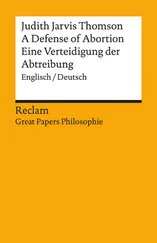In this passage Bentham points to the capacity for suffering as the vital characteristic that gives a being the right to equal consideration. The capacity for suffering – or more strictly, for suffering and/or enjoyment or happiness – is not just another characteristic like the capacity for language, or for higher mathematics. Bentham is not saying that those who try to mark “the insuperable line” that determines whether the interests of a being should be considered happen to have selected the wrong characteristic. The capacity for suffering and enjoying things is a prerequisite for having interests at all, a condition that must be satisfied before we can speak of interests in any meaningful way. It would be nonsense to say that it was not in the interests of a stone to be kicked along the road by a schoolboy. A stone does not have interests because it cannot suffer. Nothing that we can do to it could possibly make any difference to its welfare. A mouse, on the other hand, does have an interest in not being tormented, because it will suffer if it is.
If a being suffers, there can be no moral justification for refusing to take that suffering into consideration. No matter what the nature of the being, the principle of equality requires that its suffering be counted equally with the [108] like suffering – in so far as rough comparisons can be made – of any other being. If a being is not capable of suffering, or of experiencing enjoyment or happiness, there is nothing to be taken into account. This is why the limit of sentience (using the term as a convenient, if not strictly accurate, shorthand for the capacity to suffer or experience enjoyment or happiness) is the only defensible boundary of concern for the interests of others. To mark this boundary by some characteristic like intelligence or rationality would be to mark it in an arbitrary way. Why not choose some other characteristic, like skin color?
The racist violates the principle of equality by giving greater weight to the interests of members of his own race, when there is a clash between their interests and the interests of those of another race. Similarly the speciesist allows the interests of his own species to override the greater interests of members of other species.5 The pattern is the same in each case. Most human beings are speciesists. I shall now very briefly describe some of the practices that show this.
For the great majority of human beings, especially in urban, industrialized societies, the most direct form of contact with members of other species is at mealtimes: we eat them. In doing so we treat them purely as means to our ends. We regard their life and well-being as subordinate to our taste for a particular kind of dish. I say ‘taste’ deliberately – this is purely a matter of pleasing our palate. There can be no defense of eating flesh in terms of satisfying nutritional needs, since it has been established beyond doubt that we could satisfy our need for protein and other essential nutrients far more efficiently with a diet that replaced animal flesh by soy beans, or products derived from soy beans, and other high-protein vegetable products.6
It is not merely the act of killing that indicates what we are ready to do to other species in order to gratify our tastes. The suffering we inflict on the animals while they are alive is perhaps an even clearer indication of our speciesism than the fact that we are prepared to kill them.7 In order to have meat on the table at a price that people can afford, our society tolerates methods of meat production that confine sentient animals in cramped, unsuitable conditions for the entire duration of their lives. Animals are treated like machines that convert fodder into flesh, and any innovation that results in a higher ‘conversion ratio’ is liable to be adopted. As one authority on the subject has said, “cruelty is acknowledged only when profitability ceases.”8 So hens are crowded four or five to a cage with a floor area of twenty inches by eighteen inches, or around the size of a single page of the New York Times. The cages have wire floors, since this reduces cleaning costs, though wire is unsuitable for the hens’ feet; the floors slope, since this makes the eggs roll down for easy collection, although this makes it difficult for the hens to rest comfortably. In these conditions all the birds’ natural instincts are thwarted: they cannot stretch their wings fully, walk freely, dust-bathe, scratch the ground, or build a nest. Although they have never known other conditions, observers have noticed that the birds vainly try to perform these actions. Frustrated at their inability to do so, they often develop what farmers call “vices”, and peck each other to death. To prevent this, the beaks of young birds are often cut off.
This kind of treatment is not limited to poultry. Pigs are now also being reared in cages inside sheds. These animals are comparable to dogs in intelligence, and need a varied, stimulating environment if they are not to suffer from stress and boredom. Anyone who kept a dog in the way in which pigs are frequently kept would be liable to prosecution, in England at least, but because our interest in exploiting pigs is greater than our interest in exploiting dogs, we object to cruelty to dogs while consuming the produce of cruelty to pigs. Of the other animals, the condition of veal calves is perhaps worst of all, since these animals are so closely confined that they cannot even turn around or get up and lie down freely. In this way they do not develop unpalatable muscle. They are also made anaemic and kept short of roughage, to keep their flesh pale, since white veal fetches a higher price; as a result they develop a craving for iron and roughage, and have been observed to gnaw wood off the sides of their stalls, and lick greedily at any rusty hinge that is within reach.
[109] Since, as I have said, none of these practices cater for anything more than our pleasures of taste, our practice of rearing and killing other animals in order to eat them is a clear instance of the sacrifice of the most important interests of other beings in order to satisfy trivial interests of our own. To avoid speciesism we must stop this practice, and each of us has a moral obligation to cease supporting the practice. Our custom is all the support that the meat industry needs. The decision to cease giving it that support may be difficult, but it is no more difficult than it would have been for a white Southerner to go against the traditions of his society and free his slaves: if we do not change our dietary habits, how can we censure those slaveholders who would not change their own way of living?
The same form of discrimination may be observed in the widespread practice of experimenting on other species in order to see if certain substances are safe for human beings, or to test some psychological theory about the effect of severe punishment on learning, or to try out various new compounds just in case something turns up. People sometimes think that all this experimentation is for vital medical purposes, and so will reduce suffering overall. This comfortable belief is very wide off the mark. Drug companies test new shampoos and cosmetics that they are intending to put on the market by dropping them into the eyes of rabbits, held open by metal clips, in order to observe what damage results. Food additives, like artificial colorings and preservatives, are tested by what is known as the “LD 50” – a test designed to find the level of consumption at which 50 % of a group of animals will die. In the process, nearly all of the animals are made very sick before some finally die, and others pull through. If the substance is relatively harmless, as it often is, huge doses have to be force-fed to the animals, until in some cases sheer volume or concentration of the substance causes death.
Читать дальше












